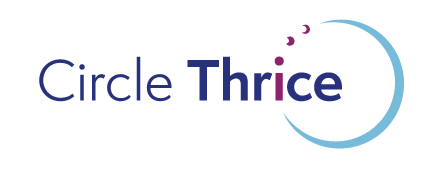In order to get a solid grip on the work I’m doing now, I’ve had to find a way to describe things that I’ve been doing and thinking about for some time, but that didn’t have a vocabulary in place that I could use.
The work I’m doing is highly magical, and pointedly liminal, but it’s very much outside the realm of spirits, circles, and spells. Or rather, those things are still useful and a part of my practice… but they’re, well, they’re like walking or driving… stuff I do naturally to get where I’m going. But those techniques don’t always inform where to go and how to get there.
It makes sense that I would use the language of my other areas of interest in order to frame my current magical and spiritual work. For example, I’m a PMP (that’s Professional Project Manager) in my career, and find the tools of my trade extremely useful for magical work. I also have a strong interest in Taleb’s ideas on Black Swans and Anti-fragility (though I’m sure he’d be absolutely horrified at my use of his work for divination — and probably rebut with his cutting wit and some thick mathematics that I can’t begin to understand). Finally, I’ve long been interested in sustainable systems, beyond the realm of ‘green’ technology.
So before we can dig in and get started, let’s talk about some of the terms and techniques that I’ve going to be referencing frequently:
Sustainability
An interesting example of a word with a broader meaning that’s been, in recent years, co-opted exclusively for a single domain. Sustainable has come to be a synonym for environmental, that is “good for the environment,” “green,” or “ecological.” Not that this is bad or incorrect, but it’s a somewhat limited application of an extremely useful paradigm. According to our friends at Merriam Webster, sustainable is:
: able to be used without being completely used up or destroyed
: involving methods that do not completely use up or destroy natural resources
: able to last or continue for a long time
While the second definition is specifically related to natural resources, the first and third aren’t necessarily so. Let’s take a couple of examples:
Rob has been burning the midnight oil. He’s a full-time university student, who also works part-time at a local gas station and fixes computers on the side for cash. He needs to have a 3.8 average to keep a small scholarship. He’s also trying to get through school with minimal debt and therefore has three roommates and eats a lot of ramen. This summer he will take off to Alaska to work in a fish cannery for extra cash. Despite working at a gas station and for a fishery, Rob isn’t particularly anti-environmental. He’s happy to recycle and doesn’t even own a car. What Rob is doing isn’t wrong or bad. In fact Rob is making a major investment in his future. But it is not sustainable for the long run. He can do it for a little while, but not forever. The pace would just use him up. It’s a good idea while he’s young, but soon, he knows he will graduate and begin drawing salary. Then, he hopes, he’ll be able to get some regular sleep and eat a salad from time to time.
Charles and David Koch are worth about $34 billion a piece. They come from a well-known oil family and inherited their money from their father. In addition to their planet destroying oil business, the brothers seem intent on using their wealth for evil. But while the oil business is in no way sustainable, their wealth certainly is. Like many in the 1%, they use their power and money specifically in order to sustain and grow that wealth over time and for their family, contributing to income inequality in the US. Their family estate will certainly continue over time.
Notice in these examples, I’m not trying to apply a value judgement. Rob may be a good guy and I’m pretty sure the Koch brothers are archons walking around in human douche suits. But the point is that they are both making choices to either foster or ignore sustainable systems for their lives.
This is the aspect of sustainability that interests me. And in fact, it does tie into the larger ecology (I’ll talk about eating local at some point here I’m sure). If your life is sustainable, that means it can continue indefinitely without getting used up or destroying itself. Sounds obvious, but it’s actually really hard to do in modern Western Society ™. After all, the opposite of sustain (to not use up) is consume (to use up). And the thing that is most likely to be consumed in our consumer society is us.
Sustainability (of ecology, body, mind, and spirit) are important and relate closely to both risk mitigation and change management — two topics that I’ll be writing about a lot here.

